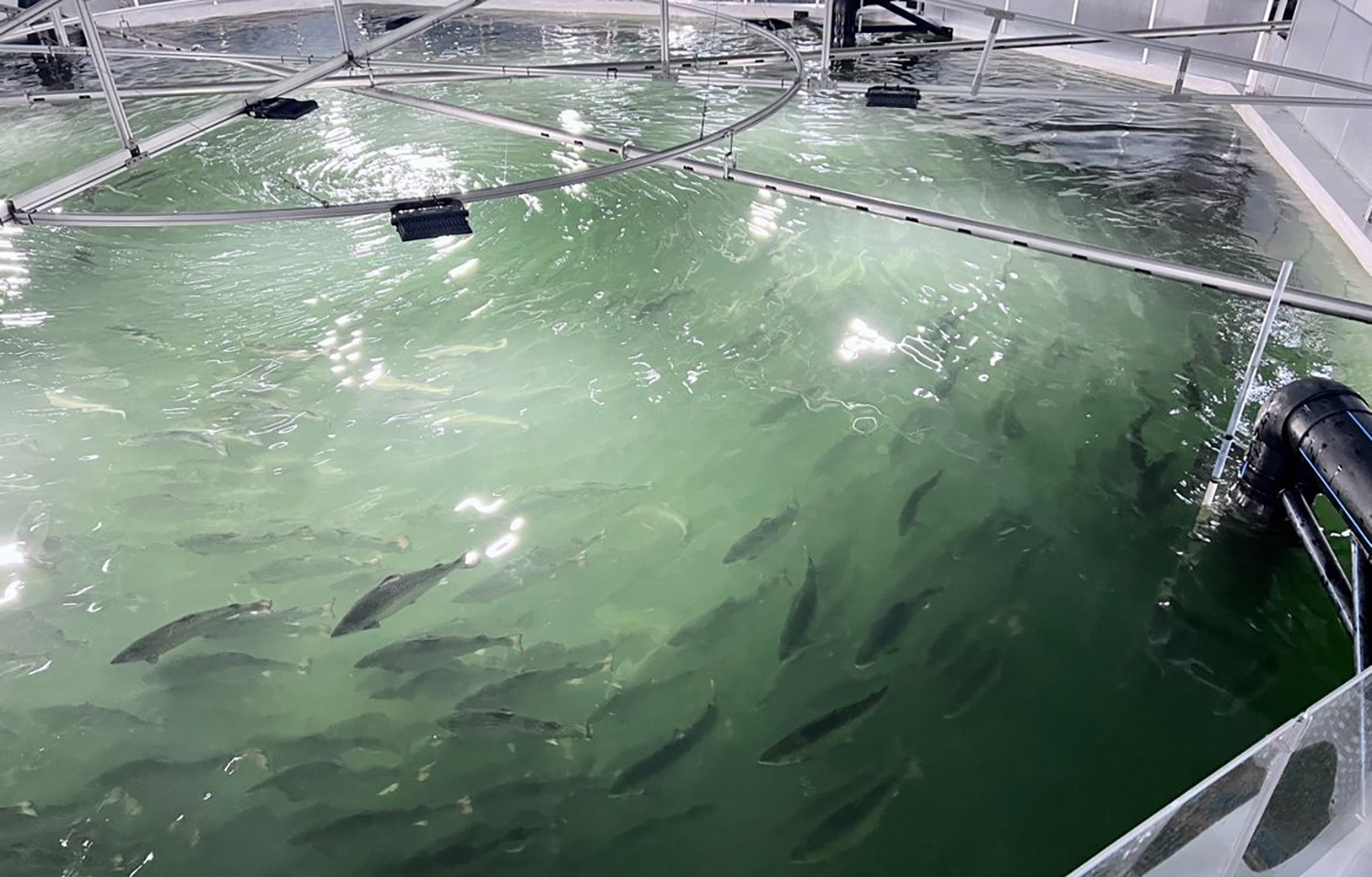The lack of capacity inherent in traditional marine-based salmon farming has made land-based production a long-term growth opportunity for the industry, according to Nordic Aqua Partners Chairman Atle Eide.
Nordic Aqua Partners is building a recirculating aquaculture system (RAS) salmon farm in Ningbo, China, with the goal of supplying the Chinese market with fresh, local salmon.
Eide told attendees at the 2024 North Atlantic Seafood Forum (NASF) in Bergen, Norway, that land-based farming technologies have now proven. He said it is inevitable more players will come into the sector, resulting in larger volumes of salmon coming from land-based production in years to come.
“Traditional salmon farming will still be the most important part of salmon production but will not be able to support the enormous demand for salmon [alone],” he said.
Oslo, Norway-based Nordic Aqua has estimated that through 2040, there will be 5 percent growth in the global consumption of salmon. Eide said the likelihood is this underlying growth will eventually grow much greater, but even at 5 percent, traditional farming technology will not be able to support that demand alone, especially as the industry begins to move away from airfreight as its preferred transportation method.
“I’m 60, so for me, [airfreight] seems to be okay, but for the younger generations, that’s absolutely impossible. It’s not sustainable,” Eide said. “We have the opportunity to replace that huge and ever-growing volume of salmon which are going to be flown into the market by producing locally.”
Nordic Aqua currently has eight batches of salmon in various stages of grow-out in Ningbo, with the ninth batch about to be introduced. Eide said Nordic Aqua Partners will be harvesting the first batch throughout Q2 2024 before moving on to batch two in Q3 2024. The company will harvest around ...








